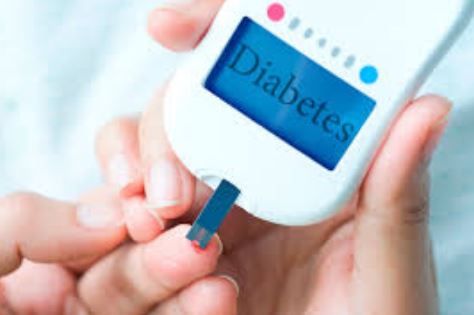86pc diabetics in India facing anxiety, depression; women more affected: Report
WORLD DIABETES DAY
Powdered milk & cereals in early childhood may raise diabetes risk later: Experts
Salty trap: Why diabetics must watch their sodium levels
BILKULONLINE
New Delhi, Nov 14: More than 4 in 5 Indians, or 86 per cent of Indians living with diabetes have experienced anxiety, depression, or another mental health condition as a result of their diabetes, according to a report, ahead of World Diabetes Day, on Wednesday.
The report based on a global survey of seven countries including India, by the International Diabetes Federation (IDF), reveals that diabetes impacts mental well-being more than previously thought. The mental health conditions among diabetics were driven commonly due to the fear of developing complications (76 per cent). Other factors included daily diabetes management (72 per cent), accessing support from a healthcare professional (65 per cent), and accessing medicines and supplies (61 per cent). Importantly, the data highlighted a gender divide. About 90 per cent of women living with diabetes reported experiencing a mental health condition, compared to 84 per cent of men. Further, 85 per cent of diabetics also reported experiencing diabetes burnout. This was primarily due to feeling frustrated or overwhelmed by daily diabetes management. Of these 73 per cent also admitted to stopping or interrupting their diabetes treatment due to stress or feeling overwhelmed. Nearly 80 per cent sought increased support for their emotional and mental well-being from their healthcare providers, the report said. Globally, the survey showed that 77 per cent of people living with diabetes have experienced anxiety, and depression, because of their diabetes. “While diabetes affects both physical and mental well-being, care often focuses only on blood sugar management, leaving many overwhelmed,” said Prof Peter Schwarz, President of the International Diabetes Federation. He emphasised the need to “look beyond blood sugar for a better diabetes life”. The survey included 1,880 individuals across seven countries including India, Brazil, Indonesia, Pakistan, South Africa, Spain, and the US.
Powdered milk & cereals in early childhood may raise diabetes risk later: Experts
Feeding your children with powdered milk and cereals may make them significantly vulnerable to the risk of diabetes later in life, warned health experts on Wednesday, ahead of World Diabetes Day. World Diabetes Day is celebrated every year on November 14, and the theme this year is “Breaking Barriers, Bridging Gaps”. India is known as the diabetes capital. The country is home to an estimated 77 million people with diabetes and 25 million prediabetic. Besides environment and genes, lifestyle factors play a huge role in the onset and progression of the disease. And it begins from the womb, said experts. “If we reduce sugar intake during pregnancy and early life, we are reducing the risk of diabetes, blood pressure, and other metabolic diseases later in life,” Dr. Ambrish Mithal, Chairman & Head – Endocrinology & Diabetes, Max Super Speciality Hospital, Saket, said. “Our bodies get programmed according to the environment that we are in utero.

These are epigenetic phenomena, which are added on to our genetic predisposition, especially during intro uterine life,” he added. A recent study, published in the journal Science, showed that children who were in the womb or born during times of sugar restrictions during their first 1,000 days after conception had up to 35 per cent lower risk of developing Type 2 diabetes. While exposure to limited sugar before birth was enough to lower risks, continued sugar restriction after birth increased the benefits, revealed the study. “The role of processed diets, mainly powdered milk, and cereals, in a baby’s early nutrition loaded with refined sugars and carbohydrates is known to take a toll on the child’s metabolic health. Early exposure to such ingredients may spike blood glucose in later life,” Dr Shashank Joshi, Consultant Endocrinologist, Lilavati Hospital Mumbai, said. “Processed diets including powdered milk and cereals contain sugar. Nutrition during early infancy and childhood can impact our propensity to develop metabolic disorders later in life. Hence, consumption of processed food including powdered milk and cereals could contribute significantly to the development of diabetes and other metabolic diseases later in life,” added Mithal. According to the World Health Organization (WHO), no processed diet including powdered milk and cereals for babies and added sugars for children up to 2 years is advisable. “After six months, when solid foods are introduced, it’s essential to be mindful of sugar’s impact on the child’s body. Children over the age of 3 should avoid added sugars entirely,” Joshi said. “This means no sweetened snacks or drinks, as even natural sources like fruit juices can contribute excess sugar that’s not necessary at this stage,” he noted. The experts said fresh fruits can satisfy children’s sweet cravings while also providing vital nutrients and fibre. They also advised parents to avoid giving sugary treats such as snacks, candies, pastries, chocolates, and ice creams to the children right from the beginning. This will help the kids to avoid sugar or eat in lower quantities. It is better to keep a tab on the child’s sugar consumption to ensure he/she doesn’t eat too much sugar. Instead, introduce children to healthier options such as dates, dry fruits, and fruits in controlled proportions, the experts noted.
Salty trap: Why diabetics must watch their sodium levels
For people with diabetes, staying healthy requires more than just blood sugar control. Careful diet choices, especially reducing salt intake, are crucial because excess salt can worsen complications and increase health risks, say healthcare experts. Ahead of World Diabetes Day on November 14, top healthcare experts here highlighted the dangers of excessive salt consumption for individuals with diabetes. According to Dr. Praveen Kumar Kulkarni, Senior Consultant Internal Medicine Specialist, KIMS Hospitals, one of the primary concerns with excessive salt consumption for people with diabetes is its impact on blood pressure. “Diabetes already places individuals at an increased risk of developing high blood pressure (hypertension), a condition that exacerbates the long-term complications of the disease. Salt causes the body to retain water, which can raise blood pressure by increasing the volume of blood circulating through the blood vessels. Over time, this added strain on the cardiovascular system can lead to more severe health problems,” said Dr Praveen Kumar Kulkarni.

“Hypertension is a common and serious complication of diabetes. It heightens the risk of heart disease, stroke, and kidney damage, all of which are already elevated for individuals with diabetes,” he added. Dr G. Sandeep Reddy, Consultant endocrinologist, Kamineni Hospitals pointed out that the American Heart Association (AHA) recommends that individuals with diabetes or high blood pressure aim to limit their sodium intake to not more than 1,500 milligrams per day. “This can help manage blood pressure and lower the likelihood of life-threatening cardiovascular events. Diabetic nephropathy, or kidney damage, is another major concern for people with diabetes. Over time, elevated blood sugar levels can damage the kidneys’ ability to filter waste and fluids from the blood,” he explained. “Excessive salt intake can further harm the kidneys, as it places additional strain on these vital organs by requiring them to filter out more sodium and water. When the kidneys are already compromised by diabetes, the added burden of processing high levels of salt can accelerate kidney damage, leading to chronic kidney disease (CKD) or even kidney failure. Kidney disease is one of the leading causes of death for people with diabetes. By cutting back on salt, individuals can help protect kidney function and reduce the risk of more severe kidney-related complications,” said Dr Sandeep. Dr. Usha Rani, General medicine senior consultant and Diabetes management, at Aster Prime Hospital believes that the risk of heart disease and stroke is significantly higher in people with diabetes due to factors like high blood pressure, poor circulation, and nerve damage. “Diabetics have thickened blood vessels and increased the likelihood of arterial blockages that can result in heart attacks or strokes. This risk is even greater for those with both diabetes and high blood pressure. Reducing salt is essential for cardiovascular health and lowering the risk of heart disease and stroke,” she said. Speaking about associated risks, Dr Namburi Anil Kumar, Senior Consultant – Internal Medicine & Diabetologist, SLG Hospitals stated that the daily requirement of salt is 5gm per day which is just under a teaspoon. “Diabetics must reduce it from their diet. In addition to raising blood pressure and worsening kidney function, excessive salt can cause the body to retain more fluid, leading to swelling, or edema. This condition is especially concerning for people with diabetes, as many individuals with the disease also experience peripheral neuropathy (nerve damage) and poor circulation. Fluid retention can exacerbate these issues, leading to painful swelling in the extremities and contributing to a feeling of heaviness or discomfort. Swelling can also impair mobility and increase the risk of infections, especially for people who may already have poor blood flow to their feet and legs,” he said. He believes that by reducing salt consumption, people with diabetes can minimise fluid retention and protect their overall health. For those managing diabetes, reducing salt intake is an important strategy for managing blood pressure, protecting kidney function, and improving cardiovascular health. While cutting back on salt can be challenging, it’s a manageable and essential step in reducing the long-term risks associated with diabetes.




